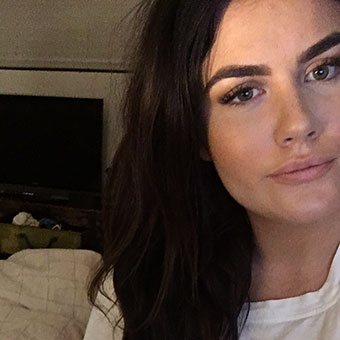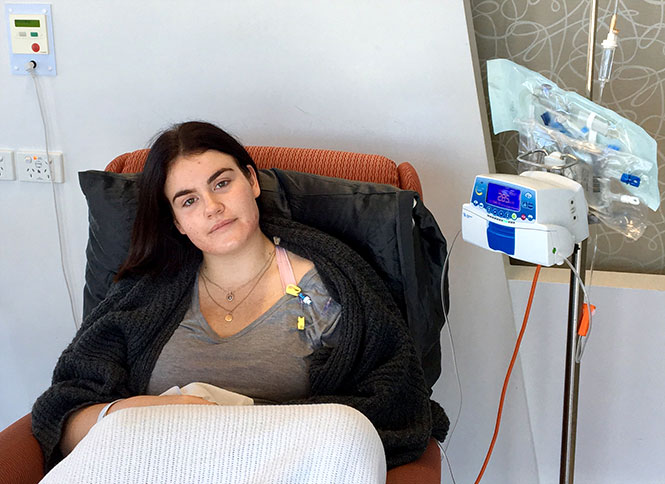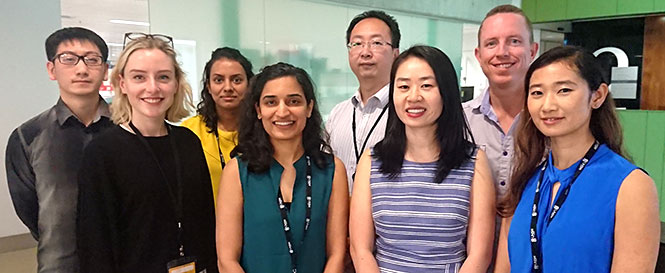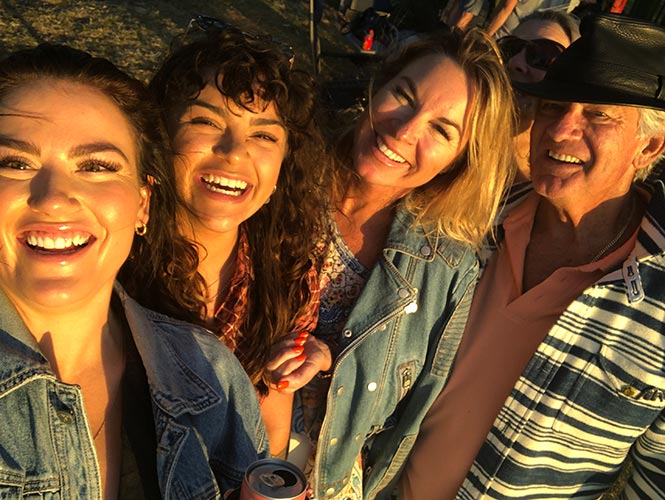“I was just devastated. Everyone was devastated - there’s no other word for it. My life as I had known it was turned completely upside down.” – Bianca.
Three years ago, Bianca was a normal 20-year-old. She was studying journalism, hitting the gym in her spare time and enjoying life with her friends and family.
It all started when Bianca first felt a lump in her breast. Weeks later, she was diagnosed with breast cancer and it was spreading quickly.
Bianca is alive today thanks to cancer research – that support like yours has made possible.
Sadly, cancer research funding has been impacted due to the challenges of this year. But, to continue saving more lives and delivering better treatments, cancer research urgently needs more support.

Bianca was just like any other 20-year-old before she was diagnosed with breast cancer.
Donate now
Having breast cancer at Bianca’s age was unusual, but thankfully she decided to get it checked when the lump kept growing.
“Then the next day my GP called me in and said, ‘we need to do a core biopsy to test for the possibility of breast cancer’,” said Bianca.
“I asked the doctor if she ever had to do this on somebody my age, and she said no. So, I think before I even heard the words, I kind of knew that I was in trouble.”
Right before Easter, it was confirmed that Bianca had stage 2B triple positive breast cancer, an aggressive form of breast cancer that was spreading fast.

Bianca was meant to complete nine months of chemotherapy treatment, but severe reactions meant she could only complete her first 12 weeks.
Bianca’s medical team worked hard to create a specialised treatment plan for her unique diagnosis. But even still, Bianca faced many complications throughout her treatment.
“When I began chemotherapy, we were finding that I was severely allergic to the treatment which affected the function of my heart,” explained Bianca.
Over the years, cancer research has delivered incredible breakthroughs for breast cancer treatment. But for the most aggressive breast cancer types, like Bianca’s, traditional therapies have struggled.
It’s why a new discovery made by Associate Professor Jeff Holst and his team is showing promising results.

Associate Professor Jeff Holst and his team are working on a new, more effective way to stop cancers from spreading.
A/Prof Holst and his team believe that even in the most aggressive types of cancer, it may be possible to destroy cancer cells.
“The premise of what we’re trying to do is to destroy cancer cells by cutting off their food supply,” he said.
“What we’ve been studying is the pumps that bring nutrients into the cancer cells, and we’ve found that many different cancer types actually have a lot of pumps on the surface.”
If his team can find a way to stop these pumps from feeding the cancer cells with nutrients, not only will this stop the cancer cells from spreading, but it could be a way of killing the cancer cells, too.
Early studies have been very promising. “We did some genetic studies where we knock out the pumps, and it showed that it is quite effective at slowing and stopping the growth of a specific subset of cancer cells,” said A/Prof Holst.
For Bianca, cancer research means everything.

Bianca with her family – who were there for her through every step of her cancer journey.
After two surgeries, many rounds of chemotherapy and 30 radiation sessions – Bianca received some amazing news. Her blood tests were now showing no evidence of disease.
It was a complete relief for Bianca, and although her life will go ‘back to normal’, she says she is happier today than she has ever been.
Will you help transform A/Prof Holst’s exciting discovery, and many more like it, into life-saving treatments so more people like Bianca can survive their cancer diagnosis?
Donate now